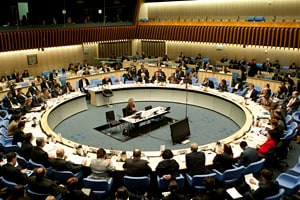 The World Health Organization’s (WHO) director general Dr Margaret Chan said people expect ready access to quality medicines and services across the world.
The World Health Organization’s (WHO) director general Dr Margaret Chan said people expect ready access to quality medicines and services across the world.
Speaking at the WHO/World Bank ministerial-level meeting on universal health coverage, Dr Chan said that more than 70 developing countries have requested support from the WHO to move towards universal coverage, but that any plans should cater for expectations of the general public.
“They want care from people who care about them,” said Dr Chan. “A commitment to universal coverage means meeting these expectations as well. Don’t punish the poor, but don’t disappoint them either.”
Health and finance ministries from 27 countries, alongside other high-level health and development stakeholders, heard Dr Chan’s comments at the WHO/World Bank meeting, held in Geneva, Switzerland.
The two-day meeting’s aim was to discuss ways that countries are progressing towards universal health coverage, with the over-riding idea that everyone, irrespective of their ability to pay, should have access to the health services they need.
Dr Chan acknowledged that there is no universal formula for achieving such overage, and each country has to take its own path based on its culture, its domestic political institutions, the legacy of its existing health system and the expectations of its people.
World Bank case studies on universal health coverage in developing nations
Coinciding with the meeting, the World Bank, which has just hired former WHO assistant director general Timothy Evans as its head of health, published a set of 22 case studies of individual countries’ attempts to implement universal health coverage.
This included Argentina’s Plan Nacer programme to increase the utilisation of healthcare services among uninsured pregnant women and children under six years old, as well as plans in India to expand health coverage for vulnerable groups.
In an analysis of these case studies, the World Bank said that at least 80 per cent of the countries shared common implementation tools, including a defined benefits package, expansion of coverage financed by general taxation and reform of public provision of health service.
More can be done, however, and the World Bank said it was notable that less than half the countries with case studies had systems in place to actually monitor improvements in people’s health in order to identify if schemes are having an effect.
Based on findings from the studies, the World Bank is testing a new universal coverage assessment tool (UNICAT) that will help countries assess their strengths and weaknesses in implementing UHC.




